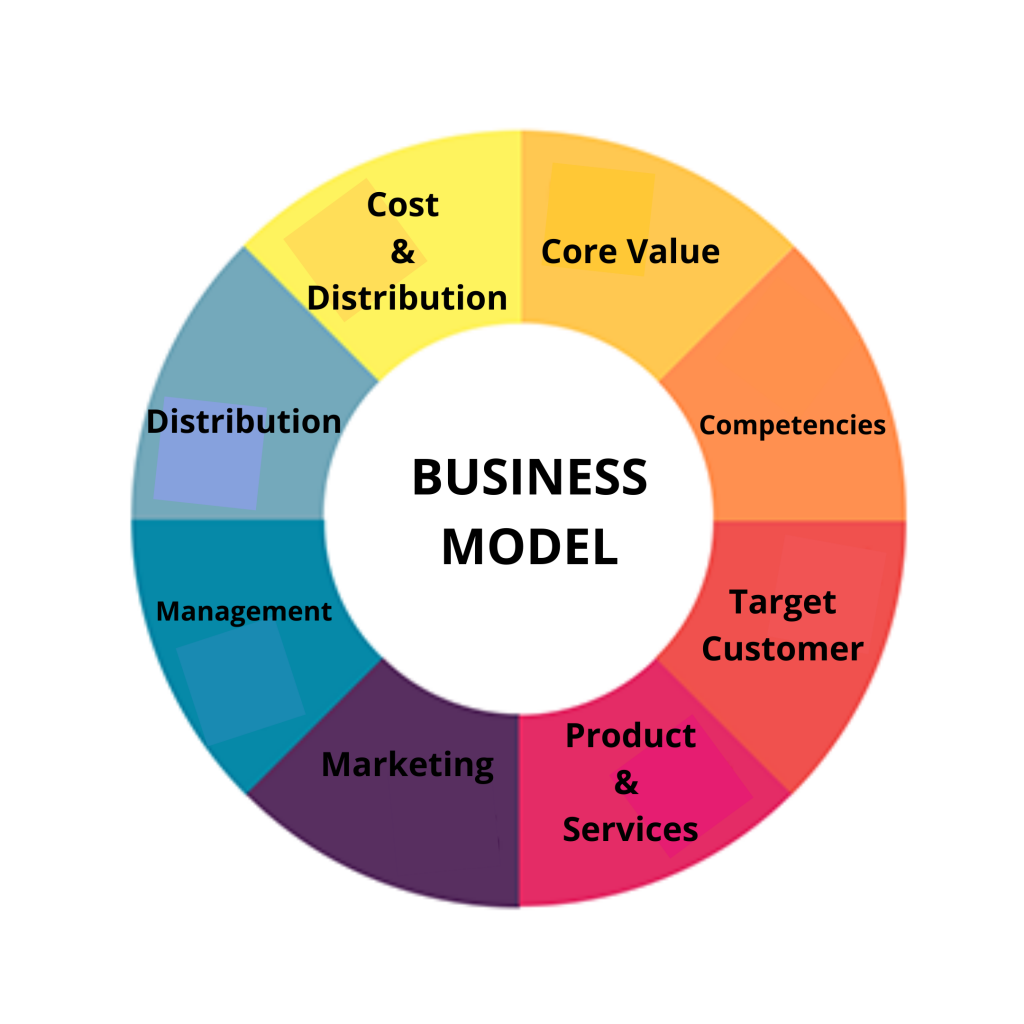The life coaching industry is booming, with a global market size exceeding $2 billion and a projected growth rate of 6.7% annually. This growing demand for coaching services translates to increasing income potential for life coaches. But How Much Does A Life Coach Make In 2024?
AI’s Hidden Gems: Easy Commissions You Won’t Believe Exist!

The Earning Spectrum: From $30,000 to $300,000+
The income range for life coaches is vast, spanning from $30,000 to a staggering $300,000 annually. This wide spectrum reflects the diverse factors influencing earnings, including:

1. Experience: The more experience a life coach has, the higher their value proposition and earning potential. Coaches with over 10 years of experience typically command higher rates than those just starting out.
2. Specialization: Focusing on a specific niche, like executive or career coaching, allows coaches to cater to a more discerning clientele and charge premium rates.


3. Location: Urban areas with a higher cost of living often see higher coaching fees compared to rural areas.
4. Business Model: Coaches working for organizations generally have a fixed salary, while independent coaches have more flexibility in setting their rates and potentially earning higher incomes.


5. Marketing and Branding: Effective marketing and personal branding strategies are crucial for attracting clients and building a successful coaching practice.
Average Salary and Hourly Rates
While the earning range is wide, the average life coach salary falls within the $60,000 range. According to ZipRecruiter, the median hourly rate for life coaches is $48. However, this can vary significantly based on the factors mentioned above.
Here’s a breakdown of typical hourly rates for different types of life coaches:
- Personal development coach: $14.36 per hour
- Career coach: $75 per hour
- Executive coach: $100-$500 per hour
- Corporate coach: $1,000-$10,000 per month or $500 per hour
Top Earners: Reaching the Six-Figure Mark
Top earners in the life coaching industry often exceed the $100,000 mark annually. These high-achieving coaches often share several key characteristics, including:
- High-level expertise: They possess exceptional knowledge and experience in their niche and are recognized as thought leaders.
- Extensive client base: They have established a loyal clientele base through successful marketing and referrals.
- Premium pricing: They command premium rates reflecting their value proposition and expertise.
- Additional income streams: They generate income through various channels, such as online courses, books, and workshops.
Experience
A life coach’s experience is a crucial aspect of their effectiveness and ability to support clients in achieving their goals. Here are key points related to a life coach’s experience:
AI’s Hidden Gems: Easy Commissions You Won’t Believe Exist!
1. Professional Background
– Life coaches often come from diverse professional backgrounds, such as psychology, counseling, business, or education. Many coaches build on their prior experience to bring a unique perspective to their coaching practice.
2. Training and Certification
– While not mandatory, many successful life coaches pursue specialized training and certification programs. These programs provide a foundation in coaching techniques, ethics, and communication skills. Coaches with recognized certifications often inspire greater confidence in potential clients.
3. Client Interaction
– Experience in working with a variety of clients equips a life coach with the skills to adapt their approach to different personalities, goals, and challenges. The ability to establish rapport and effective communication is honed through practical experience.
4. Specialization
– Over time, some life coaches choose to specialize in specific niches such as career coaching, relationship coaching, or wellness coaching. Specialization often comes with a deeper understanding of the unique challenges within that area and enhances the coach’s ability to provide targeted support.
5. Professional Development
– Continuous learning and professional development are integral to a life coach’s experience. Staying informed about the latest coaching methodologies, psychological theories, and self-help trends ensures that the coach can offer relevant and up-to-date guidance to their clients.
6. Success Stories
– A life coach’s success is often measured by the positive outcomes and transformations experienced by their clients. Having a portfolio of success stories and testimonials can enhance a coach’s reputation and attract new clients.
7. Ethical Considerations
– Experienced life coaches are well-versed in ethical considerations related to client confidentiality, boundaries, and professionalism. Ethical practices are essential for maintaining trust and credibility within the coaching relationship.
8. Personal Growth
– Life coaches often emphasize the importance of personal growth and self-awareness. Through their own life experiences and ongoing self-reflection, coaches can better empathize with their clients and offer insights from a place of authenticity.
Specialization
A life coach’s specialization refers to the specific area or niche in which they focus their coaching services. Specializing allows a life coach to develop expertise in a particular field, tailor their approach to unique challenges within that area, and attract clients seeking targeted guidance. Here are some common specializations that life coaches might choose:
1. Career Coaching
– Career coaches specialize in helping individuals navigate career transitions, set and achieve career goals, enhance leadership skills, and overcome workplace challenges.
2. Relationship Coaching
– Relationship coaches focus on guiding individuals or couples in improving their interpersonal relationships, whether it be romantic, familial, or professional relationships.
3. Wellness and Health Coaching
– Wellness coaches help clients achieve and maintain a healthy lifestyle by addressing factors such as nutrition, exercise, stress management, and overall well-being.
4. Executive Coaching
– Executive coaches work with professionals in leadership positions to enhance their leadership skills, improve decision-making, and achieve organizational goals.
5. Life Transition Coaching
– Coaches specializing in life transitions assist individuals in navigating major life changes such as divorce, retirement, relocation, or the loss of a loved one.
6. Financial Coaching
– Financial coaches guide clients in managing their finances, budgeting, saving, and making informed financial decisions to achieve their monetary goals.
7. Creativity Coaching
– Creativity coaches support individuals in unlocking and enhancing their creative potential, whether it’s in artistic pursuits, writing, or problem-solving.
8. Stress Management Coaching
– Stress management coaches help clients identify and cope with stressors, develop effective coping strategies, and create a balanced and resilient lifestyle.
9. Personal Development Coaching
– Personal development coaches work with clients on a wide range of personal growth goals, including self-discovery, confidence-building, and mindset shifts.
10. Communication and Leadership Coaching
– Coaches specializing in communication and leadership guide individuals in improving their communication skills, emotional intelligence, and leadership capabilities.
Choosing a specialization allows a life coach to align their skills and interests with the needs of a specific target audience. It also enables them to differentiate themselves in a competitive coaching market. Clients often seek coaches with expertise in the areas most relevant to their personal or professional aspirations, making specialization a strategic decision for coaches aiming to provide impactful and tailored support.
Location
The location of a life coach can have various implications, both in terms of the coach’s practice and the accessibility of their services. Here are some aspects related to a life coach’s location:
AI’s Hidden Gems: Easy Commissions You Won’t Believe Exist!
1. Local vs. Remote Practice
– Some life coaches prefer to work locally, offering in-person coaching sessions to clients within a specific geographic area. Others embrace a remote practice, leveraging technology to conduct coaching sessions via video calls or phone calls, allowing them to work with clients worldwide.
2. Market Demand
– The demand for life coaching services can vary based on location. Urban areas or regions with a high population density may offer more potential clients, while coaches in less populated areas might need to consider online coaching to reach a broader audience.
3. Cost of Living
– The cost of living in a particular location can influence a life coach’s pricing strategy. Coaches in areas with a higher cost of living may adjust their fees to align with local economic conditions, while those in areas with a lower cost of living might set more competitive rates.
4. Networking Opportunities
– Being located in a well-connected area can provide life coaches with more networking opportunities. Attending local events, workshops, and conferences allows coaches to build connections within their community and establish a presence in the industry.
5. Legal and Regulatory Considerations
– The legal and regulatory environment for life coaching can vary by location. Coaches need to be aware of any licensing requirements or regulations that may apply to their practice, especially if they offer services in-person.
6. Cultural Sensitivity
– Understanding the local culture and societal norms is important for a life coach. Coaches may need to adapt their coaching approach to align with the cultural expectations and preferences of their clients.
7. Client Demographics
– The demographics of a specific location can influence the type of clients a life coach attracts. For example, a coach in a business-centric city may work with clients seeking career advancement, while a coach in a wellness-oriented community might focus on clients pursuing a holistic lifestyle.
8. Online Presence
– Regardless of location, having a strong online presence is crucial for reaching a broader audience. Coaches can use digital marketing strategies and social media to connect with clients beyond their immediate geographic area.
Ultimately, the decision regarding a life coach’s location depends on their personal preferences, business strategy, and target audience. Whether operating locally or remotely, success often hinges on effective marketing, a clear specialization, and the ability to establish a strong connection with clients, regardless of physical proximity.
Business Model
A life coach’s business model outlines how they structure their coaching services, attract clients, and generate revenue. The business model is a critical component of a life coach’s overall strategy. Here are key elements of a life coach’s business model:
1. Service Offerings
– Define the core coaching services offered. This may include one-on-one coaching sessions, group coaching, workshops, webinars, or online courses. Clearly articulate the value proposition for clients.
2. Specialization and Niche
– Identify a specific niche or target audience. Specializing in a particular area allows a life coach to differentiate themselves and cater to the unique needs of a specific clientele.
3. Pricing Structure
– Determine the pricing model for coaching services. Common approaches include hourly rates, package deals (a set number of sessions for a fixed price), or subscription-based models for ongoing coaching relationships.
4. Online Presence
– Develop a strong online presence through a professional website, social media profiles, and other digital platforms. An engaging online presence is crucial for attracting clients, establishing credibility, and showcasing expertise.
5. Marketing and Branding
– Implement effective marketing strategies to reach the target audience. This may involve content marketing, social media marketing, collaborations, and networking. A consistent and compelling brand message helps build trust and attract clients.
6. Client Acquisition
– Outline the methods for acquiring clients. This could involve word of mouth, referrals, online advertising, or partnerships. Building a referral network and testimonials can enhance the credibility of a life coach’s services.
7. Technology and Tools
– Determine the technology and tools needed for coaching sessions. This may include video conferencing platforms, scheduling tools, and customer relationship management (CRM) systems to streamline client interactions and administrative tasks.
8. Continuing Education
– Plan for ongoing professional development to stay informed about industry trends, coaching methodologies, and personal development strategies. Continuous learning enhances the coach’s skills and keeps them competitive in the market.
9. Legal and Ethical Considerations
– Address legal and ethical considerations, including client confidentiality, informed consent, and compliance with any relevant regulations. Ensuring a solid foundation in ethical practices is essential for maintaining trust with clients.
10. Scaling the Business
– Consider strategies for scaling the coaching business, such as hiring additional coaches, expanding service offerings, or creating passive income streams through products like e-books or online courses.
11. Client Retention
– Develop strategies to foster long-term relationships with clients. This may involve setting clear expectations, providing ongoing support, and creating a positive coaching experience to encourage repeat business and referrals.
12. Feedback and Improvement
– Establish a system for gathering client feedback to continuously improve coaching services. Feedback can be valuable for refining the coaching approach and addressing areas for growth.
A well-thought-out business model is integral to the success of a life coaching practice. By carefully considering these elements, a life coach can create a sustainable and impactful business that aligns with their goals and values while effectively meeting the needs of their clients.
Marketing and Branding
Marketing and branding are critical components of a life coach’s success. Effectively promoting services and creating a compelling brand image can attract clients and establish credibility. Here are key strategies for life coach marketing and branding:
AI’s Hidden Gems: Easy Commissions You Won’t Believe Exist!
Marketing Strategies:
1. Professional Website
– Develop a professional and user-friendly website that showcases your services, expertise, and testimonials. Ensure that your contact information is easily accessible.
2. Content Marketing
– Create valuable content that demonstrates your expertise and provides insights relevant to your target audience. This can include blog posts, articles, videos, podcasts, or downloadable resources.
3. Social Media Presence
– Establish and maintain a strong presence on social media platforms relevant to your target audience. Share content regularly, engage with your audience, and leverage social media advertising to reach a wider audience.
4. Networking
– Attend industry events, conferences, and local networking opportunities. Building connections with other professionals and potential clients can lead to referrals and collaborations.
5. Referral Program
– Implement a referral program to encourage satisfied clients and colleagues to refer others to your coaching services. Offer incentives or discounts for successful referrals.
6. Partnerships
– Form partnerships with other professionals or businesses that complement your coaching services. For example, collaborate with wellness centers, career consultants, or HR professionals.
7. Webinars and Workshops
– Host webinars or workshops to showcase your expertise and provide value to your audience. This not only establishes you as an authority but also allows potential clients to experience your coaching style.
8. Testimonials
– Request and showcase client testimonials on your website and marketing materials. Positive feedback builds trust and credibility among potential clients.
9. Email Marketing
– Build an email list and send regular newsletters with valuable content, updates, and promotions. Email marketing is a powerful tool for maintaining engagement with your audience.
Branding Strategies:
1. Define Your Unique Value Proposition
– Clearly articulate what sets you apart from other life coaches. Identify your unique strengths, approach, and the specific benefits clients can expect from your coaching services.
2. Consistent Branding Across Platforms
– Maintain a consistent brand image across all online and offline platforms. This includes your website, social media profiles, business cards, and any promotional materials.
3. Professional Branding Elements
– Invest in professional branding elements such as a logo, color scheme, and visual style that align with the image you want to convey. A cohesive and polished brand enhances professionalism.
4. Authenticity
– Be authentic in your communication and branding. Authenticity fosters trust, and clients are more likely to connect with a coach who is genuine and transparent.
5. Target Audience Understanding
– Clearly define your target audience and tailor your branding to resonate with their needs, values, and aspirations. Understanding your audience helps you create messaging that speaks directly to them.
6. Brand Messaging
– Develop a clear and compelling brand message that communicates who you are, what you offer, and the transformation clients can achieve through your coaching.
7. Visual Branding on Social Media
– Pay attention to visual consistency on social media. Use the same profile picture, cover images, and graphics to reinforce your brand identity.
8. Professional Bio
– Craft a professional and engaging bio that reflects your qualifications, experience, and passion for helping clients. This bio can be used on your website, social media profiles, and promotional materials.
By combining effective marketing strategies with a strong and authentic brand, a life coach can build a reputable and recognizable presence in the industry. These efforts not only attract clients but also contribute to the long-term success and impact of the coaching practice.
Conclusion
While the life coaching industry offers promising income potential, it’s important to remember that building a successful practice requires dedication, hard work, and strategic planning. By focusing on your niche, expertise, marketing, and business development, you can increase your earning potential and achieve financial success as a life coach.
Thank you for taking the time to read my rest of the article, How Much Does A Life Coach Make In 2024
